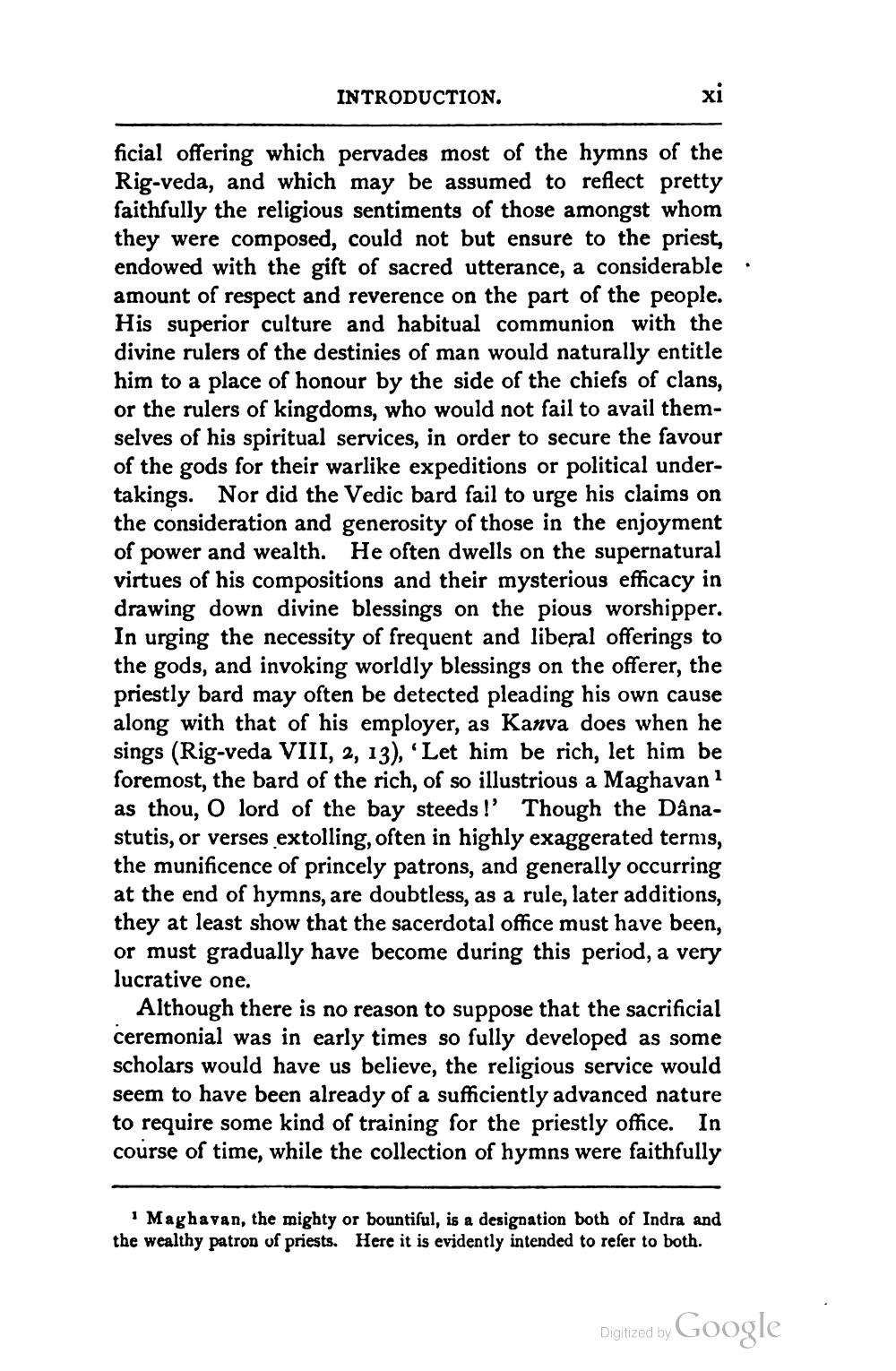________________
INTRODUCTION.
ficial offering which pervades most of the hymns of the Rig-veda, and which may be assumed to reflect pretty faithfully the religious sentiments of those amongst whom they were composed, could not but ensure to the priest, endowed with the gift of sacred utterance, a considerable amount of respect and reverence on the part of the people. His superior culture and habitual communion with the divine rulers of the destinies of man would naturally entitle him to a place of honour by the side of the chiefs of clans, or the rulers of kingdoms, who would not fail to avail themselves of his spiritual services, in order to secure the favour of the gods for their warlike expeditions or political undertakings. Nor did the Vedic bard fail to urge his claims on the consideration and generosity of those in the enjoyment of power and wealth. He often dwells on the supernatural virtues of his compositions and their mysterious efficacy in drawing down divine blessings on the pious worshipper. In urging the necessity of frequent and liberal offerings to the gods, and invoking worldly blessings on the offerer, the priestly bard may often be detected pleading his own cause along with that of his employer, as Kanva does when he sings (Rig-veda VIII, 2, 13), 'Let him be rich, let him be foremost, the bard of the rich, of so illustrious a Maghavan 1 as thou, O lord of the bay steeds !' Though the Danastutis, or verses extolling, often in highly exaggerated terms, the munificence of princely patrons, and generally occurring at the end of hymns, are doubtless, as a rule, later additions, they at least show that the sacerdotal office must have been, or must gradually have become during this period, a very lucrative one.
Although there is no reason to suppose that the sacrificial ceremonial was in early times so fully developed as some scholars would have us believe, the religious service would seem to have been already of a sufficiently advanced nature to require some kind of training for the priestly office. In course of time, while the collection of hymns were faithfully
Maghavan, the mighty or bountiful, is a designation both of Indra and the wealthy patron of priests. Here it is evidently intended to refer to both.
Digitized by Google




